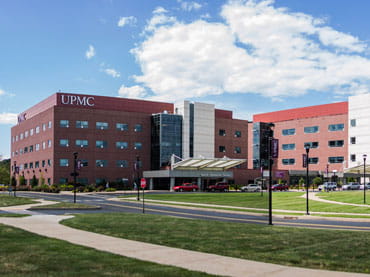The curriculum addresses principles and methods of testing for all major areas of a modern medical laboratory, including clinical significance of laboratory procedures in diagnosis and treatment.
Specific courses of our Laboratory Science Program include:
Clinical Chemistry
Application of the principles of human physiology and biochemistry to the analysis of blood, serum and other body fluids. Use of a wide variety of instrumentation enables students to gain a working knowledge of clinical chemistry and its applications in the diagnosis of disease. Laboratory mathematics and quality control data are included.
Clinical Microbiology
The structure and physiology of bacteria, fungi and parasites, their clinical significance, and the techniques used to isolate, stain, culture, identify and determine antibiotic susceptibility of pathogenic organisms.
Hematology
The formation of cells, metabolic processes and correlation of cell changes to clinical disease. Includes technical procedures for measuring and identifying cellular components by manual and automated methods.
Coagulation
The dynamics of hemostasis, including platelets, the coagulation and fibrinolytic systems, the clinical significance of changes in these systems and the procedures for measuring these changes.
Immunology/Serology
Immune response in health and disease, serological procedures used to evaluate a patient's immune response, clinical significance of changes in this response and tests used to diagnose disease.
Immunohematology
Blood group antigen and antibody systems, antibody detection and identification methods and compatibility testing as related to the transfusion of human blood. Also included are aspects of a donor service, component preparation, transfusion reactions and neonatal studies.
Urinalysis
Evaluation of kidney function and significance of normal and abnormal constituents of urine to health and disease.
Molecular Diagnostics
The basic principles of molecular biology and nucleic acid chemistry, with their impact on the fields of infectious diseases, organ transplantation, bone marrow engraftment and forensics. Includes performance of PCR applications.
Clinical Seminar
Incorporates several courses including phlebotomy techniques, laboratory safety, quality assurance, computer applications, educational methods and management principles.
Accrediting Agency
The Medical Laboratory Science Program is accredited by:
National Accrediting Agency for Clinical Laboratory Sciences
5600 N River Road, Suite 720
Rosemont, IL 60018
















